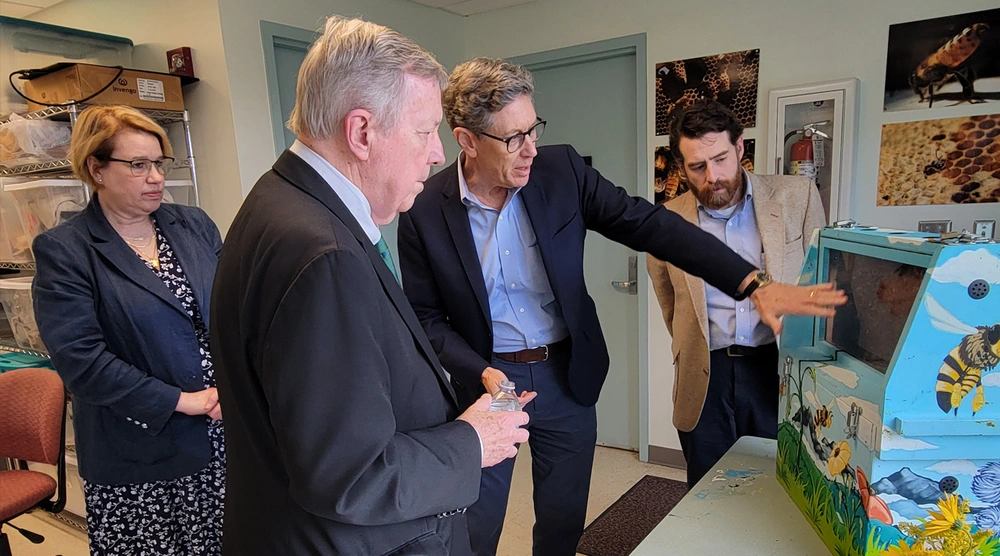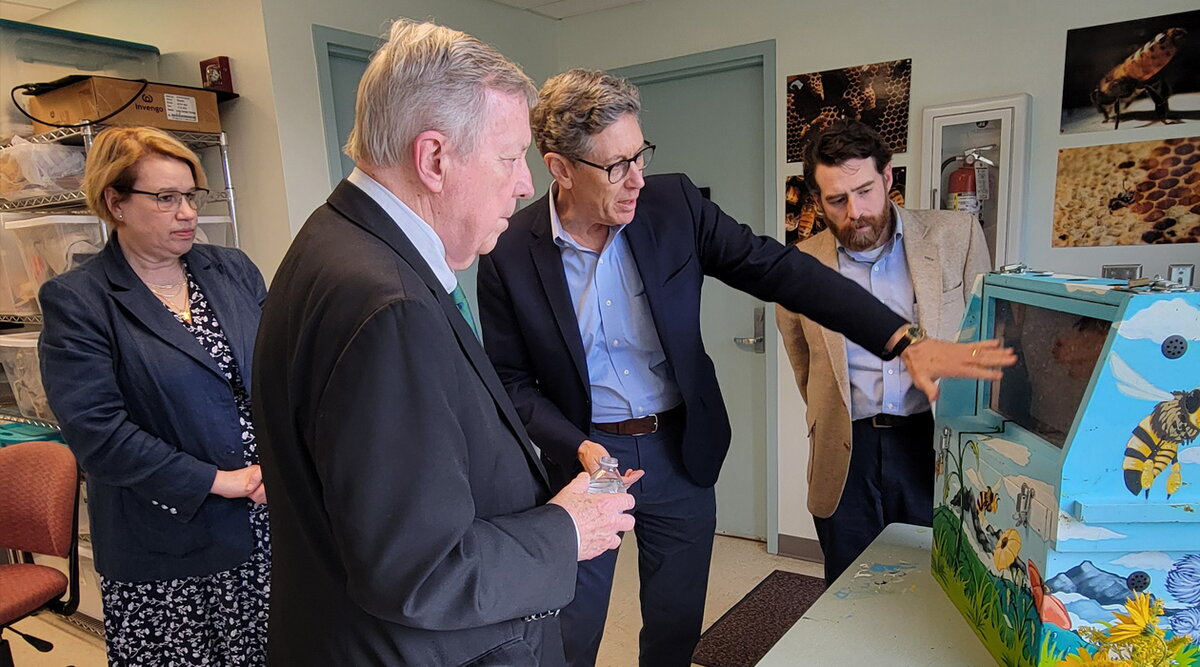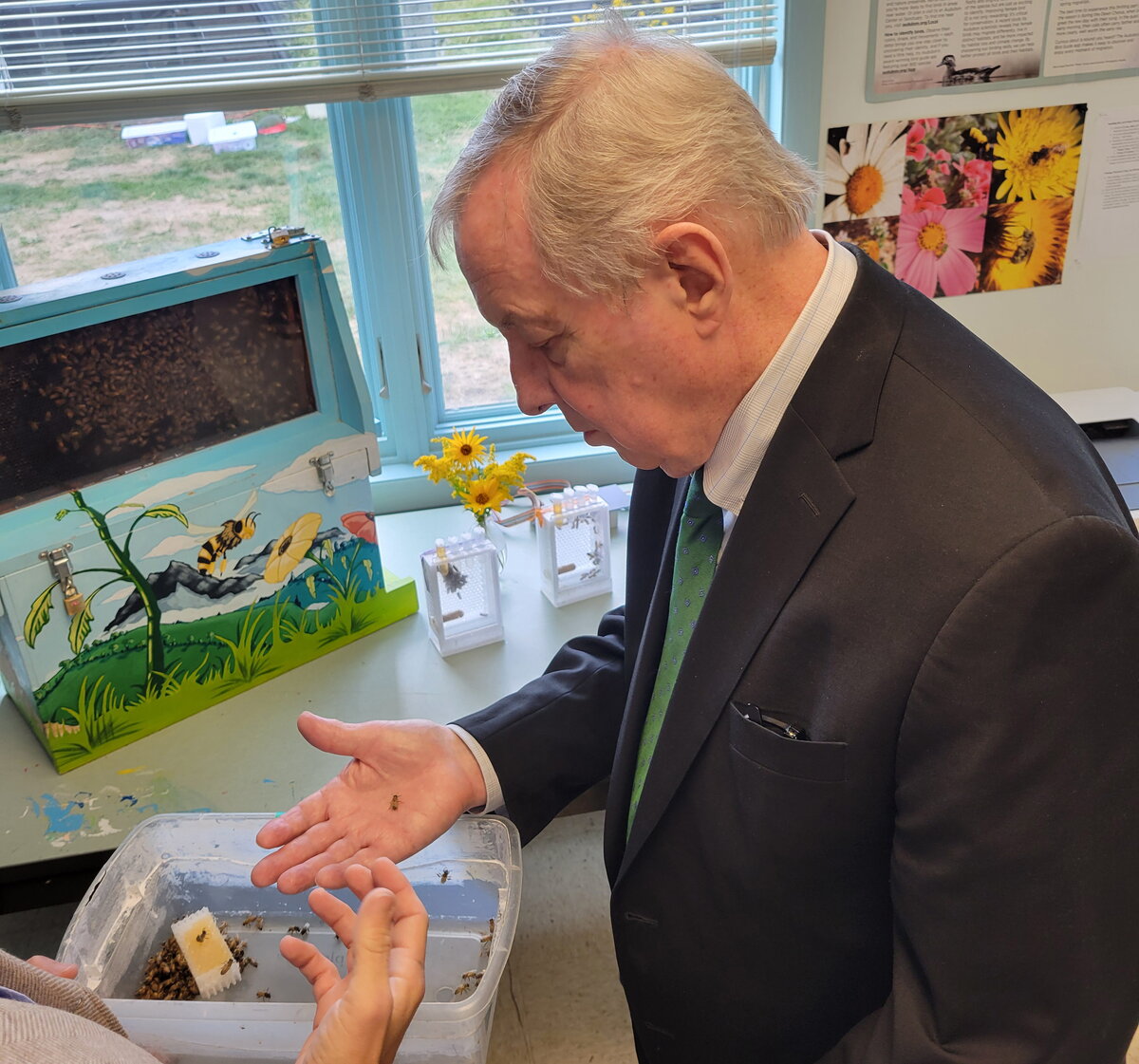

U.S. Senate Democratic Whip Dick Durbin (D-IL), a member of the Senate Agriculture Committee, today held a roundtable discussion at the University of Illinois with scientists, administrators, and beekeepers regarding their bee genomics research—which is sequencing the genomes of more than 4,000 domestic bee species. Over the last five years, Durbin has secured nearly $8 million in USDA funding for such research, which has critical implications for food and agriculture. Multiple members of the Carl R. Woese Institute for Genomic Biology have engaged with this research, which seeks to support key pollinator populations through improved understanding of their biology and natural history.
“Bee genomics research may not sound flashy, but it’s incredibly important with 35 percent of our food crops dependent on pollinators. The work being done by University of Illinois and USDA scientists is a great example of why federal investment in research is critical. These pioneering discoveries will unlock more ways to protect the bee population and strengthen the crops that depend on pollination, benefitting consumers and farmers,” said Durbin.
"Honey bees and wild bees are vital to agricultural and natural ecosystems yet face mounting threats. My lab studies the disease and pesticide factors that cause devastating yearly losses in honey bee colony populations, and the genome sequences produced as a result of Senator Durbin's strong support are a great resource for our studies,” said Adam Dolezal (IGOH), associate professor of entomology and co-director of the Illinois Bee Research Facility.
Since Fiscal Year (FY) 2021, Durbin has secured nearly $8 million in Agricultural Research Service (ARS) funding to sequence the genomes of 4,000 bee species, with the federal funding benefiting ARS labs in Urbana and Peoria. The FY26 Agriculture Appropriations bill, which cleared the Senate last month, would provide an additional $3 million if enacted into law. Durbin originally secured language in the FY20 agriculture appropriations bill directing the Secretary of Agriculture to prioritize research and work in pollinator health and to continue to annually gather data on colony losses, rising input costs, and overall economic value of pollinators to the food economy.

There are approximately 4,000 native bee species in the U.S. The main threats to bees and other pollinators are known as “The Four Ps”: parasites, pathogens, pesticides, and poor nutrition. Poor nutrition results from poor habitat and low availability and variety of flowering plants. Colony collapse disorder, a condition in which the population of a honey bee hive dramatically drops, is an important cause of colony loss and believed to be related to The Four Ps. The honey bee was the first bee species to have its genome—its complete set of genetic material—sequenced and studied, leading to new insights into honey bee health. Until recently, scientists had only been able to study the genomes of a handful of other bee species. The federally-funded research at the University of Illinois has enabled scientists to sequence 248 bee genomes, with hundreds more either in the sequencing pipeline. The resulting data help researchers to better understand the shared and unique health vulnerabilities of these bee species and to develop stronger conservation policies.